The views expressed in our content reflect individual perspectives and do not represent the authoritative views of the Baha'i Faith.
As more Americans report that they have little social support and few meaningful interactions, loneliness is, understandably, on the rise. According to a 2019 survey conducted by health insurer Cigna, 61% of Americans are lonely — and that was before we started quarantining. There is no doubt that most people crave genuine, meaningful, and lasting friendships, especially now. But how do we get that?
James Cousar, a 33-year-old from Virginia who recently moved to Atlanta, says his friendships that arise from doing service in the community together are different from other friendships because “there’s more substance.” He’s generally started friendships because of proximity — someone lives in the same neighborhood or works at the same company — or has a common interest or hobby. But when you bond with someone through service, James says he’s found that the “friendship is based on not really each other, but helping other people,” which is “a core belief [and] a core value” that he and his friends have.
Michael Pereira, a 27-year-old Virginia native, agrees, “Friendships can be superficial. You can be pleasant with somebody without knowing a lot about them.” But service “deepens the friendship in a unique way,” Mike says, “when you share thoughts about purpose and life.”
The Baha’i writings say that “True friends are even as skilled physicians, and the Teachings of God are as healing balm, a medicine for the conscience of man. They clear the head, so that a man can breathe them in and delight in their sweet fragrance. They waken those who sleep. They bring awareness to the unheeding, and a portion to the outcast, and to the hopeless, hope.”
James and Mike are not Baha’is, but they both participate in some of the Baha’i “core activities”: children’s classes, prayer gatherings, a mentoring program for adolescents, and study circles — facilitated discussions about personal and community development.
Baha’is engage in these activities because service is central to what it means to be a Baha’i. When Abdu’l-Baha, the son of Baha’u’llah and the authorized interpreter of the Baha’i writings, was asked, “What is a Baha’i?”, he replied: “To be a Bahá’í simply means to love all the world; to love humanity and try to serve it; to work for universal peace and universal brotherhood.”
If you look at the state of the world, it’s clear we need everyone to work towards these ideals, so you don’t have to be a Baha’i to be a part of these community-building activities. That’s why 30-year-old Alexander Kruszewski, who is a Baha’i, invited James and Mike to participate.
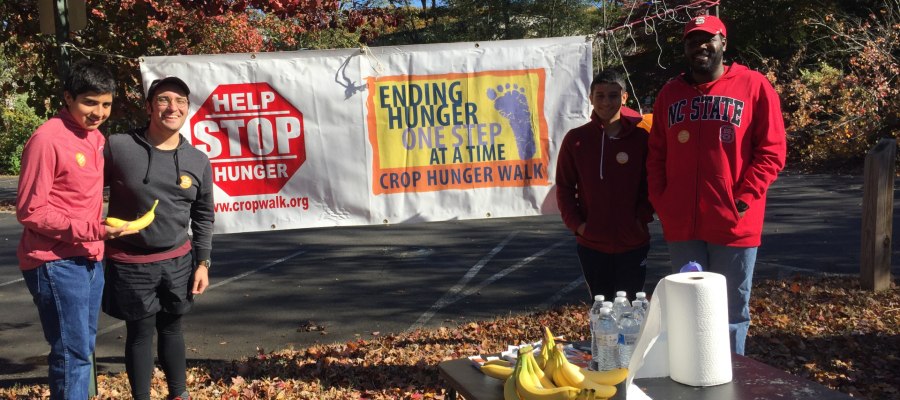
Through these activities, they built community and lasting friendships.
Getting to Know Each Other By Serving As Mentors
Alex met James in his neighborhood a few years ago and invited him to help him mentor a “junior youth” group with him. These groups focus on helping 12-15 year-olds express themselves and serve their communities. According to the Universal House of Justice, the global governing body of the Baha’i Faith, the junior youth spiritual empowerment program aims “to help young people form a strong moral identity in their early adolescent years and empower them to contribute to the well-being of their communities.”
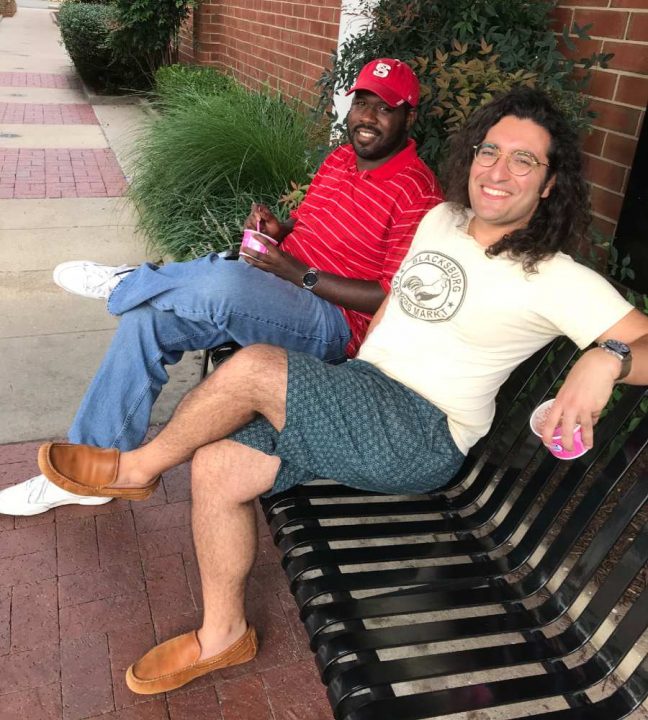
James felt excited about the opportunity to be a mentor because he believes that the best thing he can do is “to teach someone else” and “constantly impact someone’s life.”
Alex says that he and James took some time to think about what to do for the middle schoolers they started mentoring in 2017. “We would think together. We would meet together. We would plan together,” he says. And through mentoring these adolescents, Alex became inspired by “the conversations that can happen…when you recognize the potential in each other.”
He says that they are all trying to grow “beyond the material aspects of [themselves].” This program cultivated a unique space where they could ask themselves: “Who are we, and what are we trying to be?”
Alex adds, “Often, however, I remember us sitting down to go through the lesson beforehand and getting to one question and just pondering and postulating on all the different ways we could answer it, and he would humor me while I got really philosophical, and I would humor him as he would reel me back in and convince me of the more obvious and practical answer! And then, of course, we would laugh it off. Even in the minutiae of the planning and reflecting, there was plenty of room for joy.”
Along with planning lessons, they also discussed their personal lives.
We would “talk about our lives, our families, our goals, our hobbies and projects, the music we’re listening to, and our hopes and plans for the neighborhood and its activities,” Alex says. “We would also see each other fairly often outside the Junior Youth Group and the other community-building activities in the neighborhood — getting together for dinners and game nights and birthday parties and all the other things that you would talk about and look forward to with your friends — so naturally all of those things would be a part of our conversations, as well.”
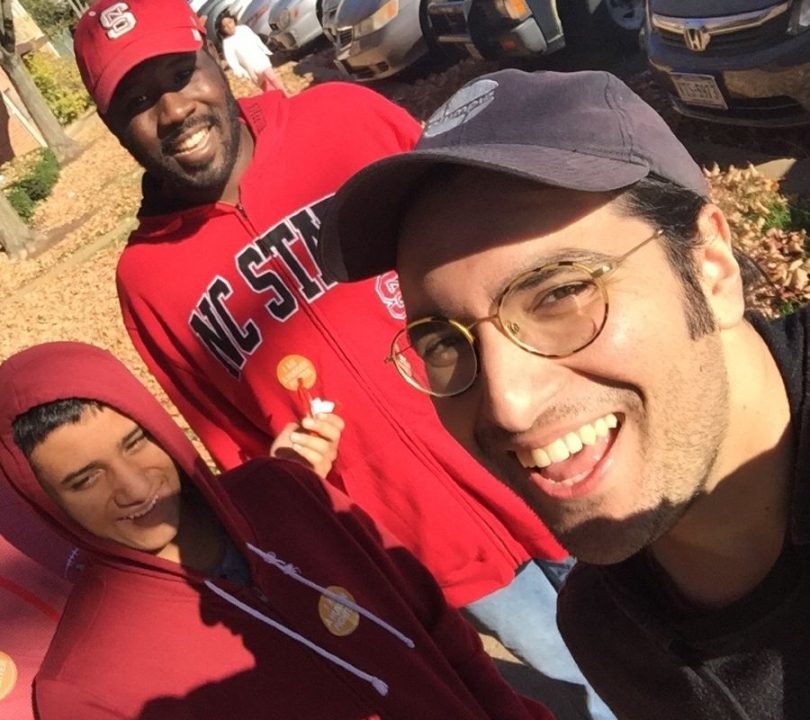
Although James ended up moving out of the area to Atlanta two years ago, he is still close with Alex and the young people from the junior youth group — they’ve aged out of the group and currently participate in a study circle. Because of COVID-19, they meet virtually, which means James can join from time-to-time, and everybody is always happy to see him. He says seeing them again took “me back to when I was there” and “brought a sense of normalcy back.”
Building a Friendship By Having Spiritual Discussions
James was also happy about the opportunity to meet people in his neighborhood through study circles. In them, a group goes through a sequence of Baha’i inspired books to build their capacity to transform society. After participating in these discussions, James, who is Christian, realized there are many similarities between Christianity and the Baha’i Faith.
“We had the same core beliefs,” he says. “I would read a passage from…the Baha’i [teachings], and I would go wait a minute, this is something I learned in Sunday school!”
Alex and Mike say they love how these study circles help them learn how to engage with people from different backgrounds and countries. “When you go to Baha’i events, you meet all sorts of people,” Mike says. “It was humbling discovering something beautiful and profound that I never heard of…it has helped me see connections between people that I have never seen before.”
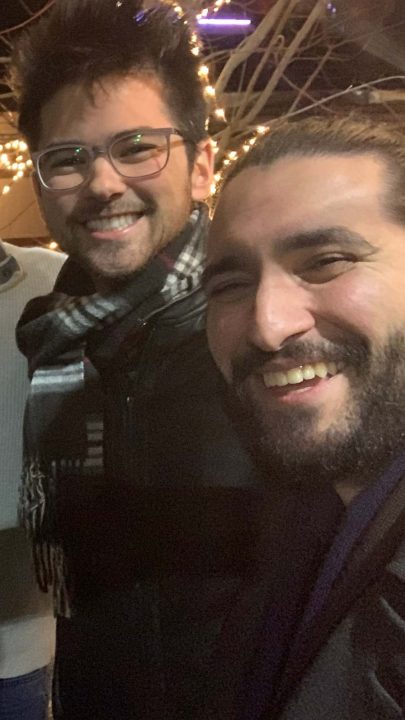
In regards to how we conduct ourselves and treat other people, the Baha’i writings teach that we should “Bring those who have been excluded into the circle of intimate friends” and “Make the despairing to be filled with hope.”
Alex says study circles helped everyone explore “what conduct are we going to adopt to change people’s hearts and widen the circle of friends?” Whenever he meets people through service, Alex thinks, “This person might be a friend that I haven’t even met yet.” And, he says, “You have to have that heart open because you never know what’s going to come on in.”
Mike admires how Alex approaches people and relationships based on the Baha’i teachings. “I’ve been able to reflect a little bit about how I might be able to do some of the same things to deepen my friendships and relationships in my life,” Mike says, “so I’ve learned a lot about him and [have] come to admire the things that he focuses on.”
Bonding Through Prayers
Mike says the Baha’i Faith offers a unique space for people of different religions, cultures, and backgrounds to pray together. It “deepens the connection between everyone in the room” and “bonds people,” he says. These connections have helped them get through tough times.
“In 2018, I lost my great-grandmother, my grandmother, and my grandma within a five to six-month period,” James says. When the reality of his losses began to sink in, and he began feeling very miserable, Alex texted him and invited him to a prayer gathering, which catalyzed his healing process.
Of the power and purpose of prayer, Baha’u’llah, the prophet and founder of the Baha’i Faith, wrote:
“Whoso reciteth, in the privacy of his chamber, the verses revealed by God, the scattering angels of the Almighty shall scatter abroad the fragrance of the words uttered by his mouth, and shall cause the heart of every righteous man to throb. Though he may, at first, remain unaware of its effect, yet the virtue of the grace vouchsafed unto him must needs sooner or later exercise its influence upon his soul.”
At that gathering, Alex says they felt the effects of the prayers. “We were going around sharing some prayers, and we got kind of emotional,” Alex recalls. “We are reading chapters from the Bible. We are reading some longer [Baha’i] prayers, singing some prayers, and even with just five or six people, we were really feeling it. There were some tears here and there and…it let us vent — to feel — in a way.”
Alex says that they still talk about that meaningful moment because it showed them that “they have each other’s back 100%.”
Even though James no longer lives in Alex’s community, he still regularly attends Alex’s neighborhood prayer gathering.
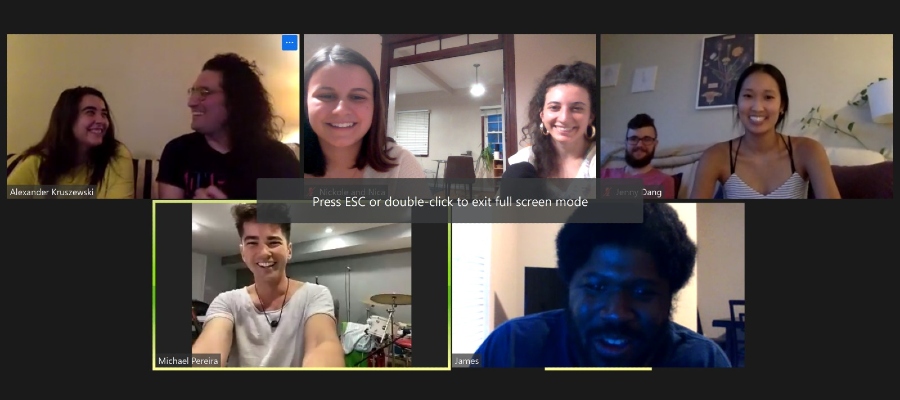
“Long after the prayers have ended and the other guests have left, we’ve stayed on and continued to talk for another hour or so. I love hearing about how things are going in Atlanta with his new job and the folks he’s connecting with there,” Alex says. “But when we get past the small talk updates, we tend to get right back to the things that we’ve always loved talking about — like our sense of purpose in life, the power of prayer, and the steps we’re each taking on our own spiritual journeys and paths of service.”
Service has enriched his friendships with Mike and James, Alex says. Together they have a “deep sense of purpose” and “shared goal to improve the world around [them] in profound ways.”


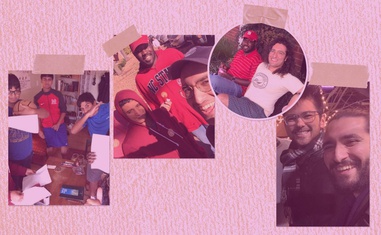




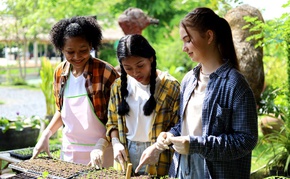









Comments
Sign in or create an account
Continue with Facebookor